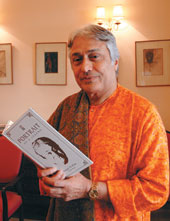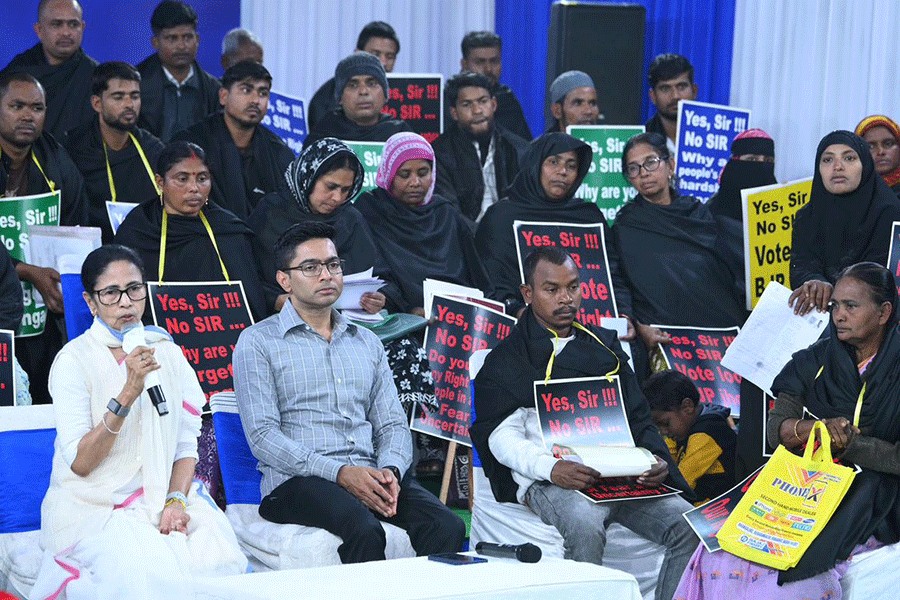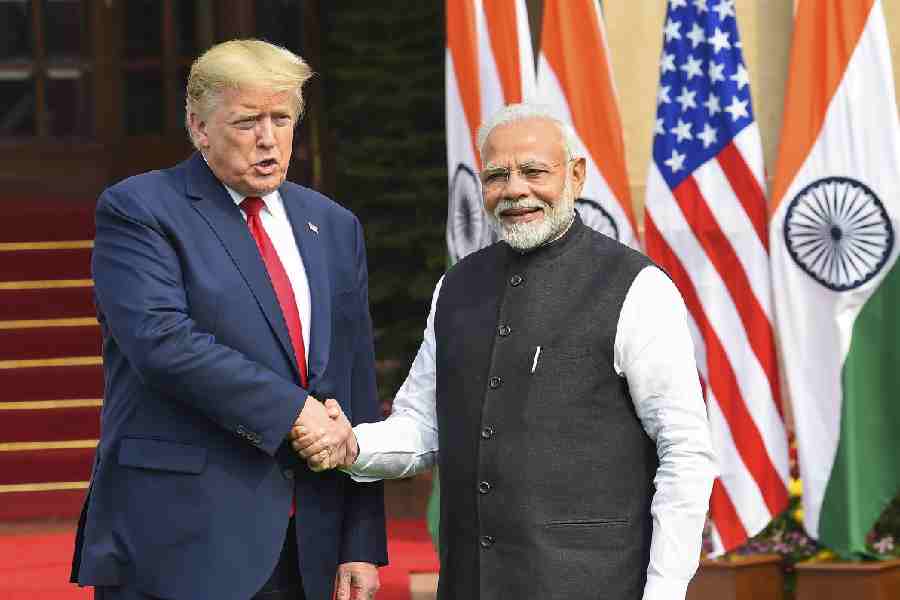 |
Amjad Ali Khan reckons that the modern world can be tough for musicians. Once upon a time people would have flocked to see maestros like him playing live. Today they are happy to reach for the remote and channel surf to find their evening’s entertainment. “It’s Amjad Ali Khan versus hundred television channels. But at the end of the day, it’s the listener’s choice whether to attend Amjad Ali Khan’s concert or catch up with his or her favourite soap opera. This was not the case 20 years ago,” he declares in a matter-of-fact tone.
Nevertheless, Amjad Ali Khan is the first to admit that all is not lost. In today’s fast-changing world, more youngsters than ever before are turning up to study classical music. But once again he has a warning: don’t get into it for the money. In fact, he insists, classical music should not be treated as a profession but as a way of life. “I feel embarrassed to say that it’s my profession. After all we are not entertainers but humble representatives of a long legacy through which we try to worship God. Classical music involves years of practice and if you want to make money, then this is not the right calling,” he says firmly.
The sarod maestro who turned 60 in October, is still the dedicated disciple who insists that music is the most wonderful gift God has given to mankind. And it’s the positive effect of music which constantly encourages him to do path-breaking work. Says Amjad Ali, “I am very happy in the world of music because for me swar is ishwar and I hope the rest of the world understands this great medium and puts an end to all the barriers.”
Amjad Ali may have turned 60 but that doesn’t mean he has slowed down in the slightest. He has just created a new raga called the Ganesh Kalyan. What’s more, he’s even considering a move into the filmworld and has held talks with Mrinal Sen to compose music for the director’s next project. Besides that he has just returned from the Dover Lane Music Conference where he played music from his album Moksha.
Right now, he’s just taking a break for a few days. But, soon after that he will be globetrotting once again and heading off for the Commonwealth Games in Australia. He’ll also be playing at the WOMAD festival (World of Music, Arts and Dance) in March. In April, he will be holding concerts and touring Europe with his two sons, Amaan and Ayaan. In between all this, Music Today has launched a four-volume commemorative pack featuring some of his best performances. The album takes the listener through the maestro’s musical career showcasing his versatility and evolution as an artiste.
Amjad Ali belongs to the sixth generation of the Senia Bangash gharana, which traces its roots to Mian Tansen, but he has breathed new life into the sarod by bringing about changes in technique and style. And he’s always very clear that it is important to move with the times and not worry only about gharanas. Says Amjad Ali, “The concept of gharana dates back to a time when there was no communication. Therefore, a musician born in Gwalior or Agra learnt and played music there and never really went beyond a particular place. I believe that the greatest gharana has been the All India Radio, as it gave the opportunity to listen to various styles of classical music. A lot of musicians have learnt from the radio but they will not admit it.”
Even though times have changed, Amjad Ali feels that all is not lost for classical music. And he believes that classical traditions must be balanced, and that musicians should be open-minded and welcome any kind of healthy change. He says, “There’s a fine line between tradition and convention. While the former has room for invention, the latter doesn’t allow any form of creativity. So a classical musician should constantly experiment and thereby evolve in the process.”
Amjad Ali has a long association with Calcutta that stretches back to the time when he first got his big break at the age of 11 there at the traditional Sadarang Music conference along with his father Hafiz Ali Khan. Now his sons have followed in his footsteps and he has come to Mumbai to attend son, Ayaan’s solo performance at the Nehru Centre.
The success of both Amaan and Ayaan also makes him happy and he says he has raised them with strong Indian values. The brothers are gaining recognition and he’s happy that they are performing solos in various concerts. “As musicians they are multi-dimensional and doing well for themselves. And while Amaan has played solo in Calcutta recently, Ayaan is also showing his potential as a solo performer. Both my wife and I have never stopped our sons from experimenting with anything. It is now their turn to take the sarod to greater heights,” he says.
With performances at some of the biggest venues in the world, it might seem that there’s nothing left for him to achieve. But Amjad Ali is not one who is content to rest on his past laurels and is continuing with his work. Also, he loves being involved in work aimed at children. When his sons were much younger, he even came out with an album called Amjad’s Sarod Sings for Children. “I have always maintained that the sarod can not only play ragas but can also sing. In that album, I even played We Shall Overcome and Old MacDonald,” he says.
As a musician, Amjad Ali Khan has composed 30-40 ragas and some time ago, had even come out with an album called Vaada sung by Roopkumar Rathod and Sadhna Sargam. He says, “I don’t look down on any form of music. Music is like a prayer and as long as I live, I will continue doing what I love best.”










